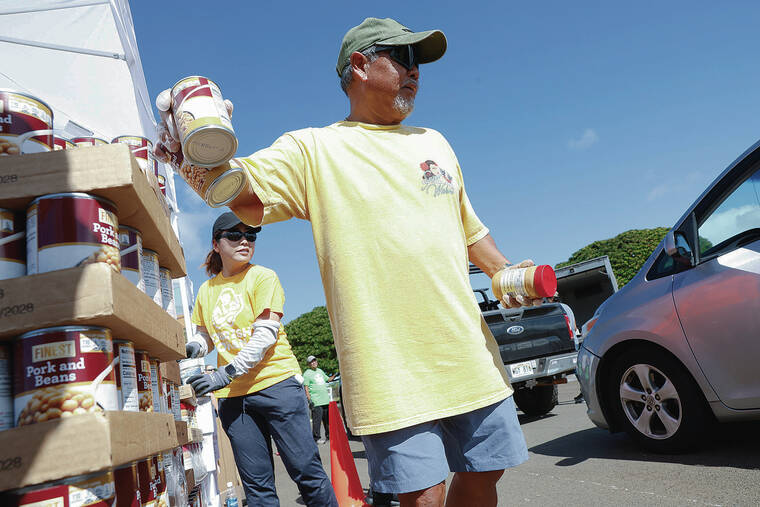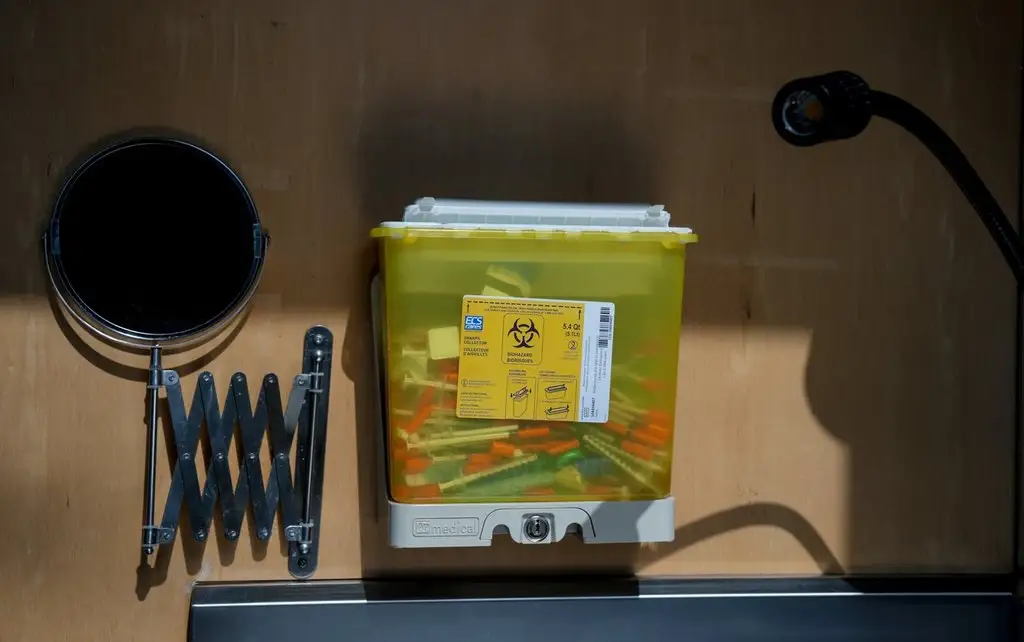Copyright staradvertiser

An emergency food distribution site that opened Friday at the Waipio Soccer Complex saw more than 400 families line up for fresh produce, milk, eggs, bread and canned goods after most experienced a loss of wages or employment, according to the Hawai‘i Foodbank. Collectively, all the people in line represented 1,800 individual family members. A third of them said they had come due to today’s expected suspension of federal SNAP benefits. The other two-thirds who lined up for food had lost jobs or incomes, suggesting many of them were federal employees working without paychecks. In response to the suspension of SNAP benefits and in the midst of the federal government shutdown, the state has provided $2 million to the Hawai‘i Foodbank to distribute to its partner food banks across the state. Lt. Gov. Sylvia Luke, dressed in a Halloween hamster costume, and U.S. Rep. Jill Tokuda helped load groceries into the vehicles of needy families at the soccer complex. In all, the new site dispersed an estimated 12,000 pounds of food. The Hawai‘i Foodbank said it will continue to hold additional pop-up distribution locations every day next week in addition to ongoing distributions. Details on the new locations will be included at hawaiifoodbank.org/shutdown/ as locations are confirmed. The additional $2 million in state money to island food banks represents just one of Hawaii’s responses this week to the expectations that SNAP funding would temporarily cease during the shutdown. At the same time, the state Department of Labor and Industrial Relations reported a spike of 381 new people who filed for state unemployment benefits in the first week they were eligible after the shutdown began on Oct. 1. DLIR specifically asked the latest group of people filing for unemployment insurance if they are directly affected by the shutdown. So some of the 381 unemployment claims also could represent civilian contractors — or even state employees — whose livelihoods depend on federal contracts or programs affected by the shutdown. But DLIR told the Honolulu Star-Advertiser that most of the new unemployment applicants are federal employees who already have missed their first paychecks. Claims from people affected by the shutdown came from every island, except for Lanai, and included nine from Molokai, alone, according to DLIR. DLIR this week then later told the Star-Advertiser — which first reported the jump in unemployment claims — that it was prevented from releasing additional unemployment numbers until the federal Bureau of Labor Statistics resumes releasing national unemployment data. The new state funding for island food banks represents just one piece of the state government’s response to the expected loss of SNAP benefits today, the continued effects of the federal government shutdown on individuals, families and the overall economy and the Trump Administration plans to increase premiums for the 23,000 Hawaii residents who rely on the Affordable Care Act marketplace. They are scheduled to face an average 12% increase in 2026, according to the state Health Department. But if enhanced federal premium tax credits are not renewed the Health Department told the Star-Advertiser that many residents could see their net monthly costs roughly double. Republicans also are pushing for other changes to be imposed on Medicare and Medicaid recipients. In Hawaii, according to the Health Department, approximately 300,000 residents are enrolled in Medicare — including about 54% in Medicare Advantage plans and 46% in traditional fee-for-service Medicare. There are also roughly 420,000 residents enrolled in Medicaid or CHIP. Gov. Josh Green on Thursday also announced that the state will provide $250 by Nov. 14 to each of Hawaii’s 161,400 island residents whose SNAP benefits were expected to be suspended starting today. A family of three, for example, will receive $750 on their Electronic Benefits Transfer cards. Green earlier this week also announced that his administration will use $100 million in federal Temporary Assistance for Needy Families funding to provide up to four months of housing and utility assistance for families with children.



